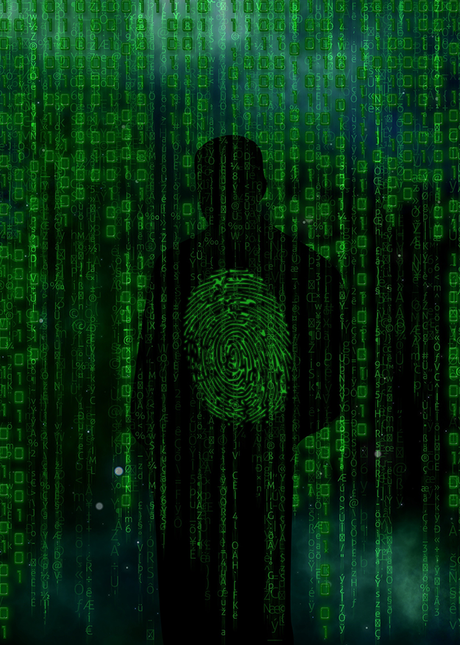Accountability is such a big word and groing up we develop a certain aversion against the concept: wake up, go to school, do your homework, do your job, be responsible, feed the kids, bring money home, be a pillar of society, don’t do this, don’t do that, no wonder that we become sick and tired of being responsible and long for that moment of vacation where we can just drop everything and forget the dradded word. But accountability is not necessarily bad. Quite on the contrary, it has positive effects in the long term and people do like accountability. We often create accountability for ourselves on purpose when there is none. We promise stuff, we give our word, we pledge to do things and we engage our friends, aquaintances and business partners with the deliberate intent to create ourselves a guidance that we, as responsible people, will then follow.
We depend on the society and society depends on us, and the glue that links us, is accountability. When a member of the society is not accountable, society cannot rely on it, it becomes a dead weight, a cancer to the system. A world without accountability is to the mind as a world without laws of physics would be to the body. With no friction and no gravity our bodies would just drift aimlessly, polluting the surroundings like space debris.

We have worked hard to create a world where we can feel safe. A world with rules and a justice system to enforce those rules, where rule breakers are caught and shunned. But imagine a reality where it is virtually impossible to track down criminals. It is not that hard to do so, it does happen every now and then in places where circumstance prevents the justice system from doing its job: times of war, places with failed social order. These are worlds and times of pillage, genuine dystopia, where it is virtually impossible for people to perform within normal parameters, create businesses, have creativity and so one, simply because most of one’s time and resources is spent hiding and preparing one’s self for the inevitable existential moment when one will face Fate.
But if this is so obvious to us when it comes to the real world it is not that difficult to understand that the same thing must be true for the cyber world. It is in fact surprising that the cyber worlds functions as well as it does with such little accountability. This is probably due to the fact that most people are true members of society, with good intentions and responsible, and they carried that accountability with them into the cyber world. This is encouraging, but it is a degrading phenomenon. It’s degrading because it is increasingly easy for rule breakers to camouflage themselves within the cyber world, and more and more people are being exposed to this world “without accountability” at ever younger age. Thanks to this, they have no means to carry over any accountability from the real world because they simply didn’t yet have time to develop one. Their minds grow up in a world without rules, without having to feel responsible for one’s actions, a world where lying and cheating becomes the norm.
We can’t blame them for this, it is a perfectly normal phenomenon. Most people don’t understand the radically different nature of cyberspace. Us carrying over accountability is intrinsic to our behavior, not a conscious process, this is why every now and then even well intentioned people behave like monkeys over the Internet. There have been incidents where allied countries have been suspected, even accused, for conducting cyber surveillance and spying over each other. How else could such action be categorized other than being downright stupid. In the real world, no country would even consider violating the premises of an ally, but cyberspace is not well understood. People don’t know how to react in a world with no accountability where rules are virtually impossible to enforce. It’s kind of like a “no man’s land”.
How will this reflect on the future of Internet? There is a high probability that the answer is “Not well”. The cost of cybercriminatility has already reached incredible proportions, with estimates running between $300 Billion and $1 Trillion for 2015. For the not so distant 2019 Juniper Research estimates a total cost for cybercrime (in terms of losses) to be a staggering $2 Trillion. To put this into perspective, the total cost for the International Space Station, building and running for ten years is around $120 Billion, for the International Thermonuclear Experimental Reactor (ITER) $14 Billion and about the same for the Large Hadron Collier (LHC). Humanity’s biggest most daring science projects together account for only a fraction of what seems to become the yearly run-rate of our inability to hold people accountable for their action over the Internet.
But what if there was accountability? What if the consequences of their actions would be more dire? When somebody breaks into a bank in the real world, the task is a lot more difficult: they need to bypass security, they need to enter the vault, they need a getaway plan, a laborious and time consuming process all the while they risk being caught. No wander that the appetite for robbing banks has diminished considerably since the Wild Wild West, when our ability to catch robbers was a lot more limited. The same can be expected as a consequence for introducing accountability within cyberspace. The weekend rule-breakers will find within their conscience the need to re-align with law and those who chose to be criminals by profession will have an ever more difficult obstacle to pass. This would narrow the focus of authorities which in turn would make the life of a criminal even harder. A feedback mechanism that could in time cripple criminality over cyberspace.
The road may not be easy, but we may not have an option. As the Internet is becoming more and more integrated into our lives, security, or more precisely the lack of security within cyberspace is spilling over into reality. It already shows up in terms of money but with time it threatens to turn our physical reality back in time a few hundred years with respect to personal security. So we need a plan and accountability seems to be an essential piece of this puzzle. As sapient as we may be, we still have certain impulses that even we ourselves recognize as degrading. The very fact that somebody may find out if we’ve succumbed to these urges is often enough to stop us from acting on them in the first place and when the All-Seeing-Eye is not sufficient peer pressure and accountability might just give us the edge to becoming better humans.
~~
The C3Authority project offers an elegant way for introducing accountability into cyberspace that is very much in line with the modern views of privacy and personal freedom. Please explore the Project Proposal for more details or stay tuned for more stories. You can give us your support by spreading the word and liking us on Facebook or by becoming a member.

